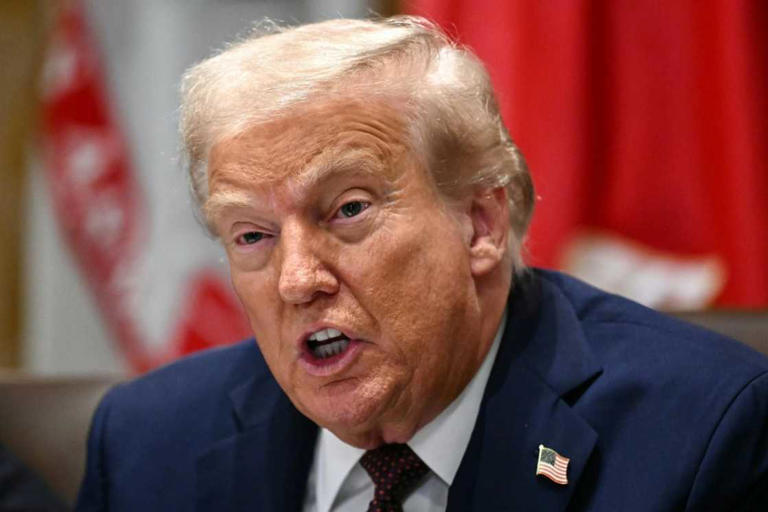- Details
- East Africa
- 236
Blow to Kenyans Working in US as Trump Imposes KSh 13m Fee on H-1B Work Visas Source: AFP
- U.S. President Donald Trump has sanctioned a new policy restricting non-immigrant workers seeking entry through the H-1B pathway
- The Trump administration has imposed a $100,000 (equivalent to 13 million) annual fee for foreigners
- The move was sanctioned to ease the competition for opportunities, with White House noting that American companies have laid off their qualified and highly skilled American workers and simultaneously hired thousands of H-1B workers
President Donald Trump has reinforced his hardline approach to immigration by endorsing a new policy directive targeting non-Americans. On Friday, September 19, he signed a proclamation introducing an annual fee of $100,000 (approximately Ksh 12.9 million) for individuals applying to enter the United States under skilled worker programs.
This applies specifically to the H-1B visa category, which allows foreign professionals to work in specialised sectors such as technology, engineering, healthcare, aviation, and higher education. Under the new rule, applicants must pay the hefty sum to be considered for entry.
The administration claims the measure is intended to reduce job competition between American citizens and highly skilled foreign workers.
In addition, Trump approved a premium residency option—dubbed the “gold card” visa—offering permanent U.S. residency to immigrants who can afford a $1 million (Ksh 129.1 million) payment.
Since returning to office, Trump has implemented a series of stringent immigration controls aimed at deterring unauthorised or economically vulnerable entries.
His strategy appears to hinge on financial barriers that make it harder for lower-income applicants to qualify.
In Kenya, the U.S. Embassy in Nairobi announced a new Integrity Fee, which raises the cost of visa applications.
Kenyan applicants must now pay a refundable $250 (Ksh 32,500) Integrity Fee in addition to the standard non-refundable $185 (Ksh 24,000) visa charge. These policy changes are still subject to review by the U.S. Congress and may face legal challenges in federal courts.
Trump’s foreign policy has recently drawn criticism for its aggressive stance.
A few months ago, he issued a directive barring Harvard University from admitting international students, citing inadequate efforts to combat antisemitism and insufficient attention to national security concerns.
Harvard responded by filing a legal challenge and obtained a temporary injunction from a federal judge.
In a public statement, the university reaffirmed its dedication to supporting international students throughout their academic journey. MSN






